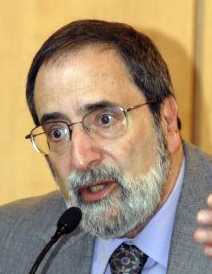By Laurie Baron

SAN DIEGO — I went to see The Sessions because it had generated a lot of buzz after winning the Audience Award at this year’s Sun Dance Film Festival. Based on the trailer I had seen, I knew it was about a paralyzed man named Mark O’Brien (John Hawkes) who sought the help of a surrogate to lose his virginity after being absolved for his plan by his priest (William Macy). The theological and therapeutic ménage á trois between Father Brendan, Mark, and the surrogate Cheryl (Helen Hunt) promised to be a humorous and heartwarming exploration of Catholic sensual inhibition and liberation.
But then the last name of Helen Hunt’s character was mentioned: Cohen-Greene. Recalling Hunt’s best-known characters, Jamie on Mad About You, Carol in As Good as It Gets, and in Jo in Twister, she usually has been typecast as a beautiful and feisty Gentile woman. The one notable exception to this was her performance in the underappreciated Then She Found Me where she played April Epner, a woman adopted by a Jewish family whose long lost birthmother comes off as very Jewish since she is played by Bette Midler. (Parenthetically, Hunt previously played the lover of a paraplegic man in the film The Waterdance.)
The way director Ben Lewin, an Australian Jew who had been stricken with polio as a child like Mark, weaves Cheryl’s otherwise incidental decision to become a Jew into the story merits attention. Like their real life counterparts, Cheryl and Mark are Irish Catholics from Massachusetts, but Cheryl is married to Michael Cohen (Adam Arkin). She is considering converting only to please Michael and his mother. Mark needs validation from Father Brendan that he wouldn’t be committing an unforgivable transgression Father Brendan condones Mark’s desires because he rationalizes that God will give him “a free pass” in light of his severe physical disability. When he listens intently to Mark’s reports about the sessions, Father Brendan appears to appreciate his joint status as father confessor and vicarious voyeur. Cheryl remarks that she felt alienated from her Catholic background because she enjoyed sex.
The film implies that Jews and Judaism have a healthier attitude towards the human body and sex. Even though he becomes jealous of Mark when he sends a love poem to Cheryl, Michael seems comfortable with his wife’s career. The real Cheryl has confided that she was attracted to Michael because he was more intellectually and sexually liberated than the Catholic men she had known. As part of the conversion ritual, Cheryl must immerse herself in the mikveh. The attendant endearingly acted by Rhea Perlman asks Cheryl to disrobe, telling her not to be ashamed of her nakedness. While Cheryl has never been embarrassed about nudity in her sessions with Mark, Perlman sanctifies her lack of modesty by commenting: “This is your body, the body God created for you.” As the camera follows her under the water, a sense of cleansing permeates the screen. Cheryl then conveys the same message to Mark after holding a mirror up to his undressed torso.
If I have dwelled on the latent Jewish meaning of the film, it is not because I think the Judaic perspective on sexuality is more progressive than that of Catholicism or any other religion. Rather it is that I have noticed that this categorization of Jewish woman as more sexually progressive than Gentile women has appeared in other recent films. Roz Fokker (Barbra Streisand) in Meet the Fokkers and Little Fockers epitomizes the sexually emancipated Jewish woman. Never abandoning her vocation as a sex therapist, she manages to mentor the uptight ex-CIA agent Jack Byrnes (Robert De Niro) on how to pleasure his wife. In For a Good Time Call, Ari Graynor’s Katie and Lauren Miller’s Lauren team up to pay the rent by running a phone sex business which briefly gets sabotaged by an undercover Evangelical Christian.
By now, some are you are probably wondering, “Is this good for the Jews?” I think yes. As Nathan Abrams has observed in his book The New Jew in Film, broadening the emotional, occupational, and religious range of Jewish characters reflects that a lessening of anti-Semitism and the concomitant Jewish insecurity that formally restricted cinematic images of Jews to either negative or idealized stereotypes. Whether Lewin intended it or not, The Sessions also acknowledges the pioneering role Jewish individuals, if not Judaism, have played in liberalizing attitudes towards sexuality from Sigmund Freud to Ruth Westheimer. Perhaps these modern thinks merely secularized the communion of bodies and souls and souls celebrated in The Song of Songs.
*
Lawrence Baron recently retired from being the Nasatir Professor of Modern Jewish History at San Diego State University. He is the author of Projecting the Holocaust into the Present: The Changing Focus of Contemporary Holocaust Cinema (Rowman and Littlefield: 2005) and editor of The Modern Jewish Experience in World Cinema (Brandeis University Press: 2011). He may be contacted at lawrence.baron@sdjewishworld.com